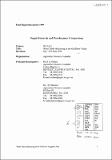| Author | Nulsen, RA |
| Author | Sherrard, JH |
| Date Accessioned | 2015-03-11 |
| Date Available | 2015-03-11 |
| Issued | 2020 |
| Identifier | http://hdl.handle.net/11079/13976 |
| Abstract | Monitoring of groundwater levels has been undertaken in the Ord River Irrigation Area using a network of bores established on farms throughout the Stage I area. These bores, many of which were installed as part of this project, complement a network previously established off farm. They have been monitored on a regular basis and changes in levels have been examined in relation to a range of factors including irrigation and crop management practices, rainfall and irrigation infrastructure management, to allow causal relationships to be established and hence potential management strategies to be developed. Monitoring has been assisted through the equipping of many bores with water depth probes and loggers to automatically record changes in levels over extended periods of time. |
| Abstract | A range of options for management of rising groundwater in the Ord has been identified and a number of these have subsequently been assessed and demonstrated to be feasible in the area. They include the use of dewatering to lower groundwater levels and the use of alternative irrigation practices to improve the efficiency of water application. Requirements for drip irrigation and improving surface irrigation management have also been examined. This process has included the assessment of soil moisture monitoring equipment, including the EnviroSCAN, to investigate the deep drainage component of ilTigation, contributing to groundwater accessions. The EnviroSCAN has also been shown to be effective in irrigation scheduling of sugar cane. |
| Abstract | Since involvement of stakeholders and extension of project findings have been considered critical for the successful implementation of findings and achievement of project outcomes, significant effort has been placed in this process. Project review and planning have been undertaken through workshops with growers, and results made available through seminars, repolis and newsletters. Best management practices developed through this and related projects will be implemented in association with a Land and Water Management Plan currently being developed for the ORIA. |
| Abstract | This project is linked to the SRDC project CR22, 'Best practice irrigation management to maximize profitability and ensure sustainability in the Ord Sugar Industry'. |
| Abstract | Systems developed to manage rising groundwater and to support sustainable cropping systems in the Ord Stage I m•ea will also be directly relevant to the proposed Stage 2 development of the ORIA. The proposal is for a further 40,000 hectares of land to be developed, with the majority of this area for sugar cane production. |
| Language | en |
| Publisher | SRDC |
| Part of Series | Internal Report; 2000 WAA001 |
| Subject | Water table |
| Subject | Groundwater levels |
| Subject | Groundwater management |
| Subject | Deep drainage |
| Subject | On-farm monitoring |
| Subject | Water use efficiency (WUE) |
| Subject | Soil moisture |
| Subject | Farming systems |
| Subject | Production management |
| Title | Water table monitoring in the Ord River Valley : SRDC Final report WAA001 |

